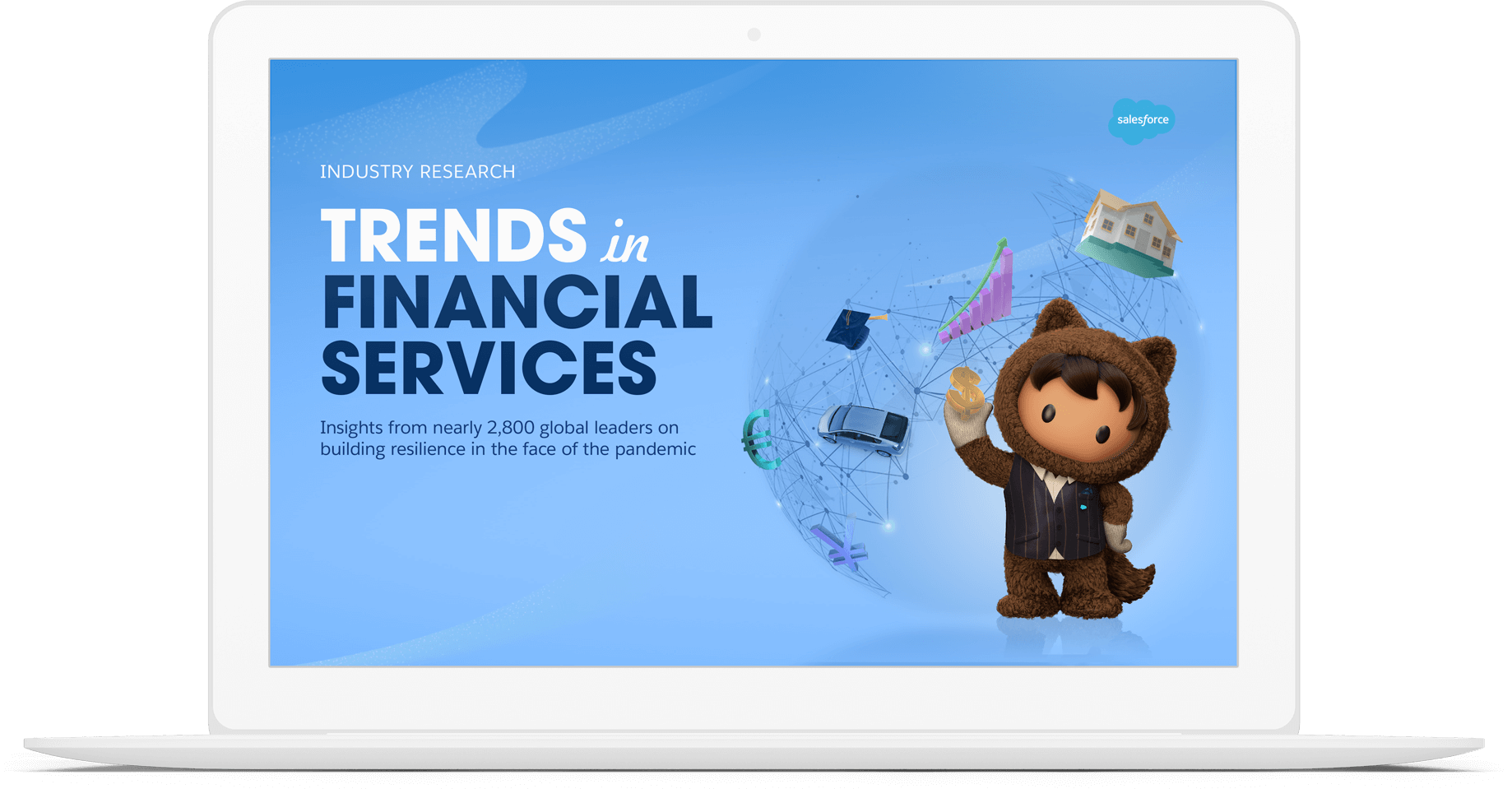If you’re wondering: what is retail banking? How can you benefit from it? Is it important? Well, you’ve come to the right place.
Before we review the basics, let’s unpack the unique challenges retail bankers face when trying to offer the best possible service. In the current global economic landscape, retail banking customers have higher expectations than the average consumer.
To discover how financial services organisations, including retail banking services, are coping with these high expectations, we conducted two global surveys. Our Trends in Financial Services report provides insights into the future of the industry and how growth-minded organisations can succeed even during a crisis.
Trends in Financial Services
Discover why retail banking leaders are particularly interested in automating account transfers.

Almost 2,800 leaders in the financial services industry were surveyed in two waves: one just before the pandemic and the second a year later. The survey respondents have been categorised into two types:
- Stabilisers focus on the short-term to simply stabilise operations.
- Growers focus on long-term growth.
Now that we’ve established our survey groups, let’s go back to the basics: what is retail banking? If you’re already well aware, you can skip down to the top 3 benefits of autonomous finance in retail banking.
What is retail banking?
Retail banking (also known as consumer banking or personal banking) is a type of banking that supplies financial services to an individual consumer rather than a business. Some of the services offered by retail banks are:
- Checking accounts
- Savings accounts
- Mortgages
- Credit cards
- Personal loans
Essentially, retail banks are B2B financial services institutions serving consumers. The role of retail banking may be obvious, but it’s important to consider how it serves consumers in the current global socio-economic situation. For instance, could retail banking be even more vital than it was pre-pandemic?
In the wake of the COVID-19 pandemic, a lot of people’s financial health and stability rapidly changed. Customer expectations and concern over potential future crises have heightened dramatically.
Retail bankers have decisions to make in terms of satisfying and supporting their customers’ needs. For instance, retail bankers can utilise data analysis to gain key insights and benefit their customers.
The importance of digital transformation is another factor retail banks must keep in mind, with 60-85% of consumers across Western Europe choosing digital over face-to-face for everyday transactions. And while it’s easy to assume that it’s only younger generations driving the trend for digital channels, those statistics also include customers in the 65+ age group.
Customers’ expectations of retail banking
According to the Trends in Financial Services report, a majority of customers (66%) expect the brands and businesses they deal with to anticipate and understand their unique needs and expectations. This is where technology comes in to help retail banking organisations anticipate their customers’ needs and deliver the right solutions.
Customers have gotten used to connecting with their banks and other financial institutions whenever and wherever it’s convenient for them. This means that retail banks must deliver effortless omnichannel engagement if they want to stay competitive and delight their customers.
The role of autonomous finance in retail banking
Autonomous finance is going to be key to the successful future of retail banking, but what is it exactly?
Autonomous finance is an automated, algorithm-driven financial service that makes decisions or takes actions on a customer’s behalf. As well as providing a seamless customer banking experience, autonomous finance will help unlock even more value sources and opportunities. In fact, 87% of financial services leaders surveyed agree that autonomous finance will soon be critical for top performers in the industry.
We know that the future is likely to be shaped by the global pandemic. Companies that deploy autonomous finance will gain a significant competitive advantage going forward. Businesses need to address the customer experience (CX) gap and they need to do it intelligently.
Here are a few statistics about the role of autonomous finance in retail banking:
- 62% of retail banking leaders surveyed believe autonomous finance will lead to improved financial wellness
- 61% of retail banking leaders surveyed believe autonomous finance will lead to better personalisation
The report also defined the top use cases for autonomous finance in retail banking, which are:
Automating account transfers
Customer behaviours and goals could be used to trigger automated transfers between accounts. For individuals worried about their financial futures, an automated service like this can help them save appropriately.
Personalising product recommendations
With the help of autonomous finance, banks can tailor the products they offer to their customers’ specific needs. For example, recommending refinancing products when existing interest rates are set to change, or limiting credit card offers if they already have several cards.
Automatic pre-qualification
Retail banking customers appreciate anything that makes life easier for them. The application process for things like credit cards and mortgages can take a lot of time and effort. If they apply and don’t qualify for a particular financial product, their frustration could quickly turn into dissatisfaction with the bank itself. Automatic pre-qualification not only streamlines the process for your business but also makes it simpler for your customers.
The top 3 benefits of autonomous finance in retail banking
1. Better customer understanding
Understanding your customers on a deeper level, their preferences, habits, and individual needs benefits your organisation as a whole. A better understanding of who they are and what they need from you lets you better attract, serve, and retain customers.
2. Improved customer experiences
Automated finance offers numerous customer benefits. Along with the automated account transfers which make it easier for customers to achieve their savings goals, other expected customer benefits include proactive customer service, simplified financial decisions, and improved financial wellness.
3. Better use of employees’ time
Streamlining and automating back-office processes means your employees will have more time to put into revenue-generating tasks. Without automation, back-office staff will be manually working on tasks that could (and should) be handled automatically.
Autonomous finance and the future of retail banking
Autonomous finance is key to delivering great customer experiences in retail banking at scale. In our research, we saw that both Stabilisers and Growers agreed with the importance of autonomous finance: 85% of Stabilisers and 88% of Growers say that autonomous finance will soon be essential for businesses to be top performers.
If you want to learn more about how deploying autonomous finance can give you a competitive edge in retail banking, download the Trends in Financial Services report today.
Trends in Financial Services
Discover why retail banking leaders are particularly interested in automating account transfers.

























